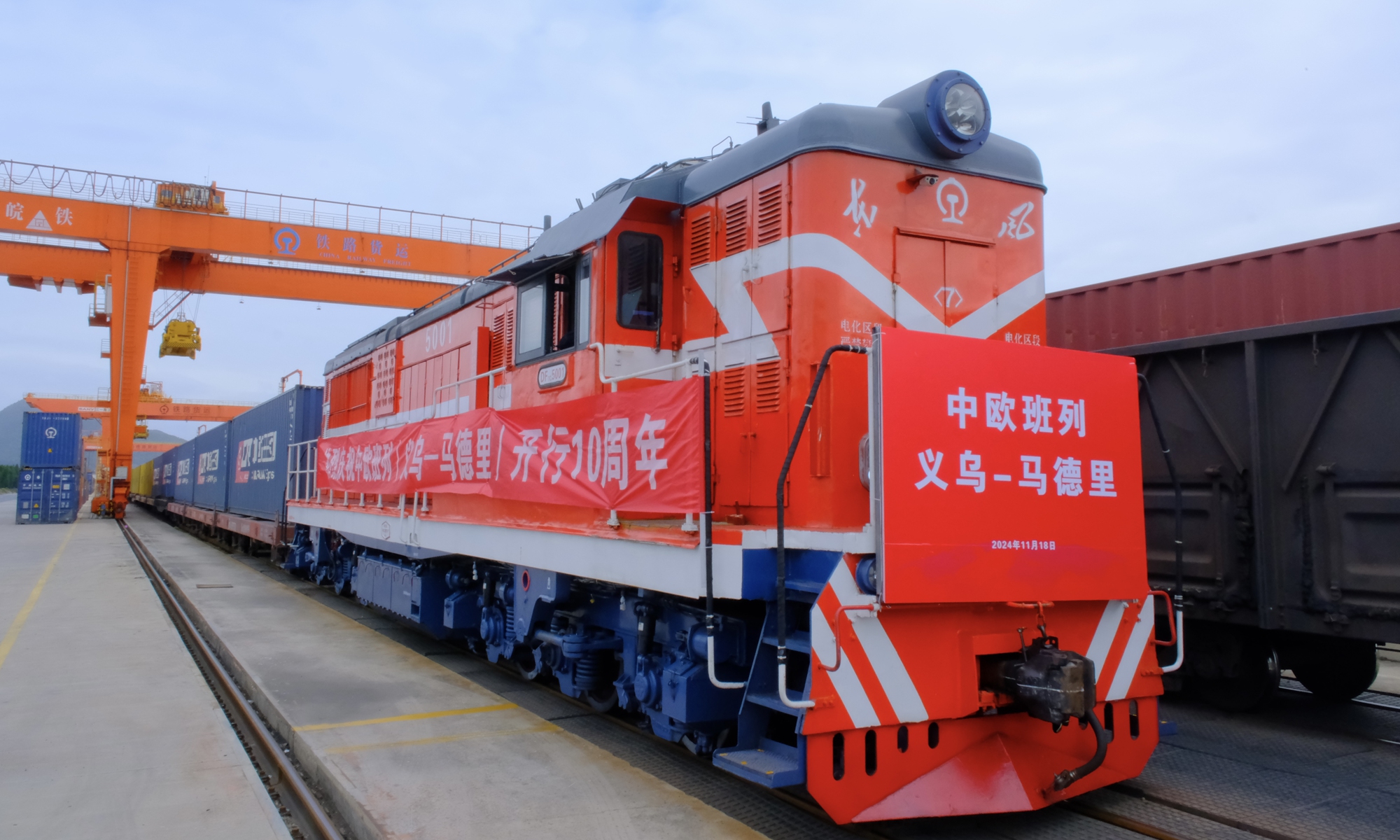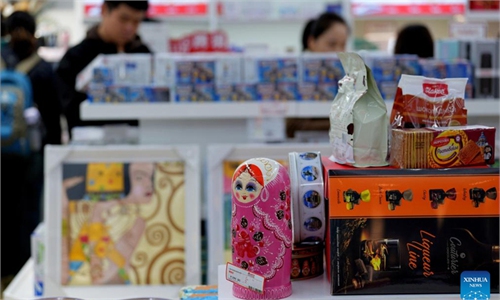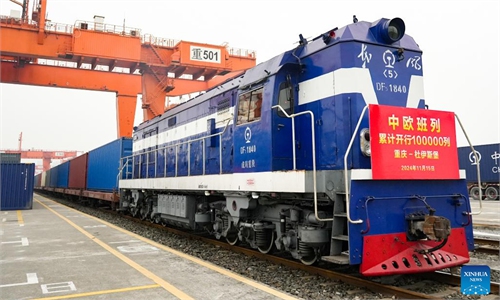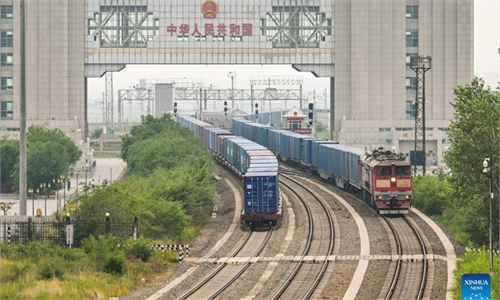Yiwu-Madrid freight train service marks 10th anniversary, strengthening trade connectivity between China, Europe

On November 18, a China-Europe freight train carrying 110 containers of daily goods, auto parts, and machinery departed from Yiwu West Railway Station in East China's Zhejiang Province, bound for Madrid, Spain. Covering over 13,000 kilometers, the world's longest China-Europe freight route celebrates a decade of fostering trade and economic ties between the two regions. Photo: Zhang Yiyi/GT
On Monday morning, a China-Europe freight train loaded with 110 containers of daily necessities, auto parts, and machinery equipment departed from Yiwu, China's small commodity hub in Zhejiang Province, for Madrid, Spain. Monday marked the 10th anniversary of the operation of the route.
"The Yiwu-Madrid China-Europe freight train, spanning over 13,000 kilometers, is one of the world's longest international rail cargo routes. It has become a vital trade link between China and Spain and significantly boosted economic development in both regions," Feng Xubin, CEO Yiwu Timex Industrial Investment Co, the freight train service operator, told the Global Times on Monday.
According to Feng, Zhejiang's imports from Spain have expanded by 170.9 percent, while exports have grown by 87.6 percent over the past decade.
"Popular Spanish products like wine, olive oil and Iberian ham have become increasingly popular in the Chinese mainland market," Feng said.
Over the past decade, more than 6,700 China-Europe freight trains from Yiwu have delivered 670,000 containers of goods. Among them, the Yiwu-Madrid route completed 1,800 round trips, transporting 145,500 containers of commodities worth more than $8 billion, according to China Railway Shanghai Group Co.
The unique advantages of China-Europe freight trains are crucial to enhancing trade cooperation between China and Europe.
"Compared with sea freight, the China-Europe freight train provides more reliable and faster service, with minimal impact from bad weather or other disruptions," Kong Zhijian, a representative from Yiwu International Trade Market, whose company has been importing goods from Spain for years, told the Global Times on Monday.
Kong noted that the Yiwu-Madrid rail service reduces transportation time by more than 25 days compared with sea freight, offers consistent delivery schedules and reduces damage rates for imported food products. "A shorter transport time means faster capital turnover and fresher food for consumers," he said.
"The volume of exports has grown, and the export structure has also improved. Yiwu's exports have shifted from low-cost items and everyday goods to high-value, high-tech products such as auto parts, smart appliances, solar panels and electric vehicles," a representative of China Railway Shanghai Group Co told the Global Times on Monday.
European goods like cosmetics, personal care products, wine, food and kitchenware transported back via China-Europe freight trains have become popular imported items for Chinese consumers, the representative said.
As the China-Europe freight train network expands, it has further enhanced connectivity between China's hinterland and global markets. The China-Europe freight train service linking Yiwu with Europe reaches more than 50 countries and regions across Eurasia, connecting more than 160 cities, spanning Europe, Russia and Central Asia, according to China Railway Shanghai Group Co.
According to local railway authorities, the number of China-Europe freight trains linking Yiwu with Europe rose from 23 in 2014 to more than 1,100 annually in 2024.
The annual freight value has grown from $92 million to $2.62 billion, while transported goods have expanded from 10,000 categories to nearly 50,000 now.



